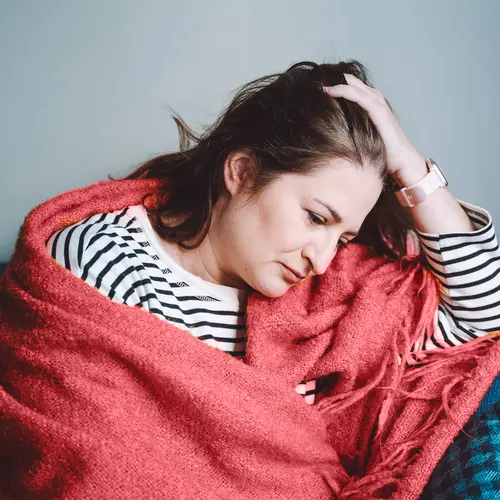Shopaholics are often born innocently enough. For Lynn Braz, for instance, shopping was a bona fide hobby until a pair of family tragedies pushed her over the edge. "When my sister died, the shopping went out of control," says the 47-year-old San Francisco writer. "The next thing I bought was going to be the magical thing that was going to fix me and make me feel good."
Let's face it, shopping can feel good. But beware: Although the uplift is real, a blue mood may short-circuit your ability to spot a bargain. In one study, participants who watched a sad movie subsequently paid 300% more than the control group paid to purchase an item.
This may be because sadness leads to feelings of lower self-worth, sparking the desire to acquire more. When you’re sad, often everything looks worse, including your possessions. That can make you willing to pay more for something new that will, as Braz says, fix things.
The neurology of compulsive shopping
The hunt may be more rewarding than actually bagging a purchase, according to Gregory Berns, MD, PhD, a neuroscientist and professor of psychiatry and behavioral sciences at Emory University in Atlanta and author of Satisfaction: The Science of Finding True Fulfillment. Anticipation of a reward releases spurts of dopamine in the parts of the brain that keep you focused on gaining a prize, whether that’s a brownie or a leather jacket.
Buying something, on the other hand, ends the reward process, Berns says. "Once you’ve acquired it, nothing new is going to happen." That’s why shopping can turn into a true addiction: We crave that dopamine high, but it’s spending -- not having -- that produces it.
If you often buy things you don’t need, max out your credit cards for nonessential purchases, or lie about what you bought, you may be one of the 5.8% of Americans who are compulsive shoppers. Learn more about how to spot the signs of shopping addiction.
Treating shopaholism
Braz learned to place an "interrupter" between the impulse and opening her wallet, such as making a phone call or even taking a few deep breaths. Nowadays, she feels anxious when she actually buys something. "If the anxiety fades when I get it home," she says, "I know I bought something I really needed."
Other strategies for curbing a shopping compulsion include:
Prolong the anticipation. Stay away from pricey boutiques and head for a department store that offers acres of browsing and lots of distraction.
Find a new game. Because novelty fires up the dopamine system, activities that push you to keep learning new skills, such as rock climbing or competitive Scrabble, can be just as rewarding as shopping.
Get a different rush. When you feel the need for relief, get on a treadmill or bike and push as hard as you can to release endorphins and get a "runner’s high."
Break the addiction. If your shopping is a problem, cognitive behavioral therapy can help you, according to the Illinois Institute for Addiction Recovery. Support groups like Debtors Anonymous will keep you off the plastic.

